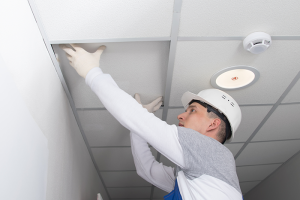RTLS platform improves productivity
Piedmont Healthcare is the largest health care provider in Georgia and a rapidly growing health system. Although the growth has brought great benefit to its community in expanding health care access, Piedmont’s rapid growth also has created challenges. Among those challenges were staff struggling to locate mobile medical equipment and other assets they needed to care for patients.
Piedmont did not have a reliable way to measure equipment use systemwide or determine purchasing needs. This led to inefficient workflows, low productivity and high equipment costs. The health care system needed an asset tracking program that would work for its flagship hospital, Piedmont Atlanta, as well as at other facilities across its network. Piedmont’s goals were to standardize asset management on a single platform, reduce costs and improve outcomes systemwide.
Piedmont collaborated closely with Vizzia to install and expand Vizzia’s advanced real-time location systems (RTLSs) and software platform throughout the health care network, with the goal of deploying in all 11 hospitals and in other facilities. The RTLS solution ensures that clean and operational mobile medical equipment, including beds, pumps, defibrillators and more, are always available when nurses and other staff need them.
Installing Vizzia’s RTLS in multiple hospitals has created opportunities for additional efficiencies and innovative ways of managing equipment. Working with Vizzia, Piedmont created a centralized distribution center to serve as an in-house equipment rental operation for the health system. With information from the tracking system and software, Piedmont staffers can see when one location has too much or too little of a particular piece of equipment. They can then redistribute equipment where it’s needed, while also reducing rental fees and purchasing less equipment overall.
In addition to asset management, Piedmont uses Vizzia’s RTLS to remotely monitor temperatures. This allowed the health system to eliminate manual temperature logging and automatically protect food, blood, medications and other items stored in refrigerators and freezers.
The software also alerts staff when protocol is not being followed — for example, if a piece of equipment is used on a patient and then moved to another patient’s room without being cleaned. And it helps ensure equipment used on a patient with a health care-associated infection can be quickly located and taken out of service.
Network devices were installed on ceilings in multiple hospitals, and staff were trained on how to use the accompanying software. Each piece of equipment that requires tracking is outfitted with a small tag that contains a unique identification code. Those asset tags share location information with network devices, and the information is transmitted to a server and then to Vizzia’s advanced mapping and analytics software.
Hospital staffers use Vizzia’s software to view the real-time location of each asset. They can also search for specific devices and run detailed reports. The RTLS platform has allowed Piedmont to reach its goal of standardizing and optimizing asset management processes across Piedmont facilities, which has resulted in substantial return on investment, increased worker productivity by 90% and improved equipment utilization by more than 20%.
Piedmont now can share and rent expensive equipment, such as specialty beds, gurneys and wheelchairs, across the health system. As a result, the health system is paying significantly less in equipment rental fees, much less equipment is lost or stolen, and capital expenses have been reduced.
In all, the platform has helped to save $2 million across the health system and $1 million in one year at a single hospital, Piedmont Athens Regional Medical Center. It also eliminated $400,000 in capital purchases over two years and helps to save $510,000 annually on equipment costs.
“Standardizing also will help us transfer best practices and lessons learned from one location to others more easily and tap into the creativity and effectiveness of our entire team,” says Jeff Allen, senior director of biomedical engineering.




